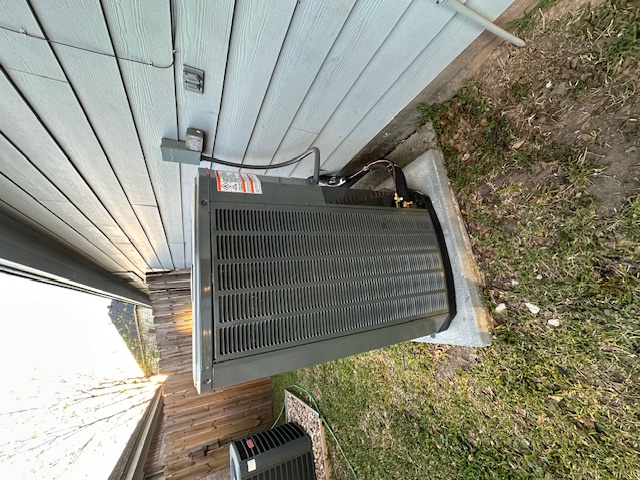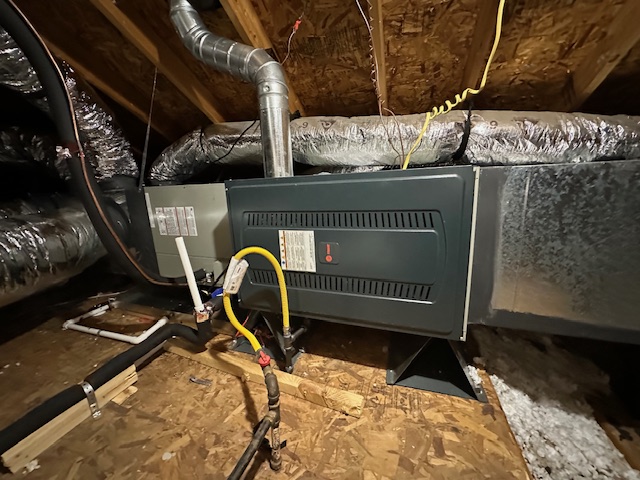Many homeowners skip their annual AC maintenance to save time and money, but this short-term thinking often leads to bigger expenses. By neglecting regular tune-ups, your system works harder, uses more energy, and becomes more likely to break down during the hottest days of the year. Skipping AC maintenance can also increase your utility bills by approximately 5% each year and may even void your manufacturer's warranty, leaving you responsible for costly repairs that would otherwise be covered.
Most air conditioning problems don't appear suddenly, developing over time as small issues grow into major malfunctions. This is why it’s important to schedule professional AC maintenance in spring before the summer heat arrives. This timing allows technicians to catch and fix potential problems before your system faces peak demand.
The Risks of Skipping AC Maintenance Before Summer
Neglecting your air conditioner maintenance before summer can lead to several costly issues. Regular check-ups are essential to keep your cooling system running efficiently when temperatures rise.
Increased Likelihood of AC Breakdowns
Air conditioners that haven't been properly maintained are much more likely to break down during the hottest days of summer. Dust and debris build up in the system over time, forcing your AC to work harder than necessary. This strain often leads to component failures when you need cooling the most.
For example, dirty filters restrict airflow, which can cause your evaporator coil to freeze. This common issue completely stops your air conditioning system from working. Similarly, worn electrical connections may fail under the increased demand of summer use.
Regular maintenance includes cleaning key components and checking electrical connections. HVAC companies typically examine refrigerant levels during tune-ups, preventing the efficiency problems that come with improper cooling charge levels.
Shortened Lifespan of Your Air Conditioner
An air conditioner should last 10-15 years with proper care, but without regular maintenance, this lifespan can be cut by up to 50%. The continuous strain on unmaintained components causes premature wear and tear. The compressor suffers the most from neglect. When filters clog and airflow diminishes, the compressor works harder and may fail years before it should.
Annual professional maintenance protects your investment. During these visits, HVAC technicians lubricate moving parts, clean coils, and check critical components. These simple steps significantly extend your air conditioner's useful life.
Ways maintenance extends AC lifespan:
- Prevents excessive wear on the compressor
- Maintains proper refrigerant levels
- Ensures clean coils for efficient heat transfer
- Identifies small issues before they cause major damage
Potential for Expensive Emergency Repairs
Emergency AC repairs typically cost 30-50% more than scheduled maintenance visits. When systems fail during peak summer months, you'll face higher repair costs and uncomfortable waiting periods. Many expensive repairs could be prevented with regular maintenance. For example, a simple coil cleaning might cost $100-200 during scheduled maintenance, but replacing a compressor that failed due to dirty coils can cost $1,500-2,500.
Issues like refrigerant leaks can develop slowly, but HVAC technicians can identify and fix small leaks before they lead to compressor damage. Similarly, electrical problems that might cause a system shutdown can be caught early.
Impact on Energy Efficiency and Costs
Not maintaining your air conditioning systems can directly affect your wallet through increased energy consumption. When AC units aren't properly maintained, they work harder to achieve the same cooling, resulting in significantly higher utility bills.
Rise in Energy Consumption During Peak Months
During summer, air conditioners typically account for up to 50% of a home's energy usage, and a poorly maintained AC system can consume 10-25% more electricity than one that receives regular service. This happens because dirt-clogged filters restrict airflow, forcing the system to run longer cycles to reach desired temperatures.
Dust and debris accumulated on condenser coils create an insulating layer that prevents efficient heat transfer. This makes your HVAC system struggle to cool your home properly. The extra strain causes components like compressors and fans to draw more power while delivering less cooling, creating a double negative impact on energy consumption.
Higher Energy Bills and Operating Costs
The financial impact of skipping AC maintenance becomes painfully obvious when summer utility bills arrive. A neglected system can increase monthly energy costs by 15-30% compared to a well-maintained unit. Consider this: if your typical summer cooling costs run $250 monthly, poor maintenance could add $37-$75 to each bill. Over just one season, that's $150-$300 wasted!
Beyond direct energy costs, inefficient operation leads to:
- Increased wear on system components
- More frequent repairs (averaging $150-$500 each)
- Shortened equipment lifespan (reducing a 15-year investment to 8-10 years)
Missed Opportunities to Save Energy
Regular AC maintenance unlocks several energy-saving opportunities that benefit your wallet and the environment. Clean air filters alone can reduce energy consumption by 5-15%, while properly maintained refrigerant levels ensure optimal efficiency. Checking and sealing air ducts, which can prevent the 20-30% cooling loss typical in leaky systems. Technicians also calibrate thermostats for accurate temperature control, eliminating wasteful overcooling.
Many utility companies offer rebates or incentives for proven maintenance, further reducing your overall costs. These programs recognize that well-maintained HVAC systems help decrease grid demand during peak summer periods. Additionally, smart thermostats and programmable settings work best with efficiently running systems, multiplying your energy savings potential.
Decreased Air Quality and Home Comfort
Dirty components and neglected maintenance directly impact the air you breathe and how comfortable your home feels during hot summer months.
Accumulation of Dust and Allergens
Unmaintained air conditioning systems collect dust, pollen, pet dander, and other allergens. These particles build up in your ductwork and on AC components, then circulate throughout your home with each cooling cycle. For allergy sufferers, this can trigger symptoms like sneezing, congestion, and itchy eyes. Even if you don't have allergies, breathing dusty air isn't healthy for anyone. Children and elderly family members are particularly vulnerable to poor indoor air quality.
Homes with neglected AC systems often have up to 5 times more airborne particles compared to homes with regular maintenance. That's because professional technicians clean critical components during maintenance visits, removing accumulated debris before it becomes a problem.
Ineffective Air Filters and Air Leaks
Clogged air filters restrict airflow, forcing your system to work harder. When filters become extremely dirty, they stop catching particles effectively, letting contaminants pass right through. Air leaks in ductwork compound these issues. Up to 30% of conditioned air can escape through leaky ducts, carrying humidity and outdoor pollutants into your living spaces.
Change standard filters every 1-3 months, depending on pets and allergies. Homes with solar exposure through windows may need more frequent changes, as sunlight accelerates dust accumulation.
Unbalanced Cooling and Hot Spots
A poorly-maintained AC system struggles to cool your home evenly, and you might notice certain rooms feel stuffy while others are too cold. This temperature inconsistency makes everyone uncomfortable and can disrupt sleep. Meanwhile, hot spots often develop in rooms facing west or with large windows. The problem worsens when airflow is restricted by dirty coils or blocked vents.
Common causes of temperature imbalance include:
- Refrigerant leaks
- Dirty condenser coils
- Fan motor issues
- Blocked or leaky ducts
During maintenance, technicians check refrigerant levels and ensure all components work properly to deliver consistent cooling. They also inspect dampers that control airflow to different areas of your home, helping eliminate uncomfortable hot and cold zones.
Get in touch to schedule a professional inspection of your AC system.











